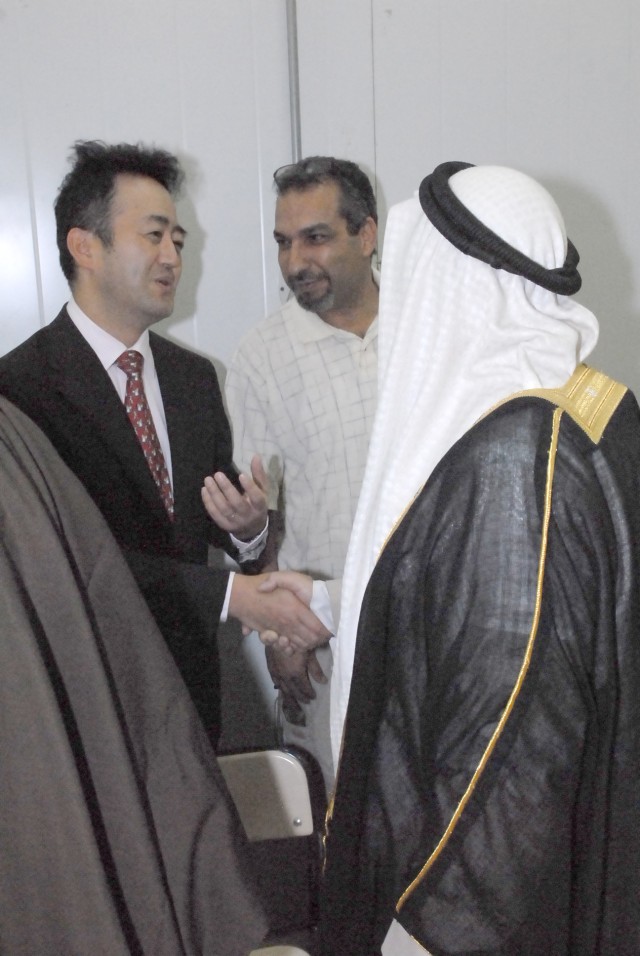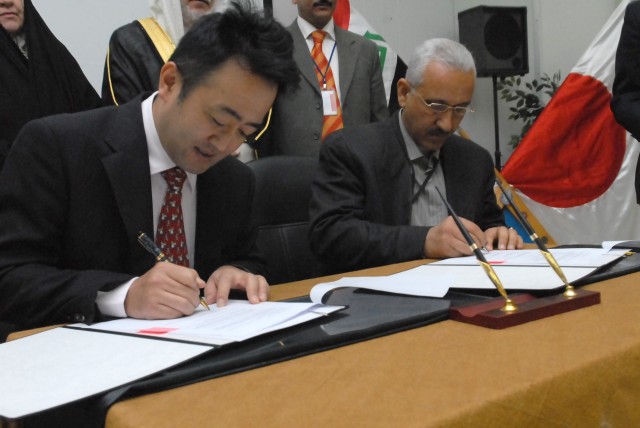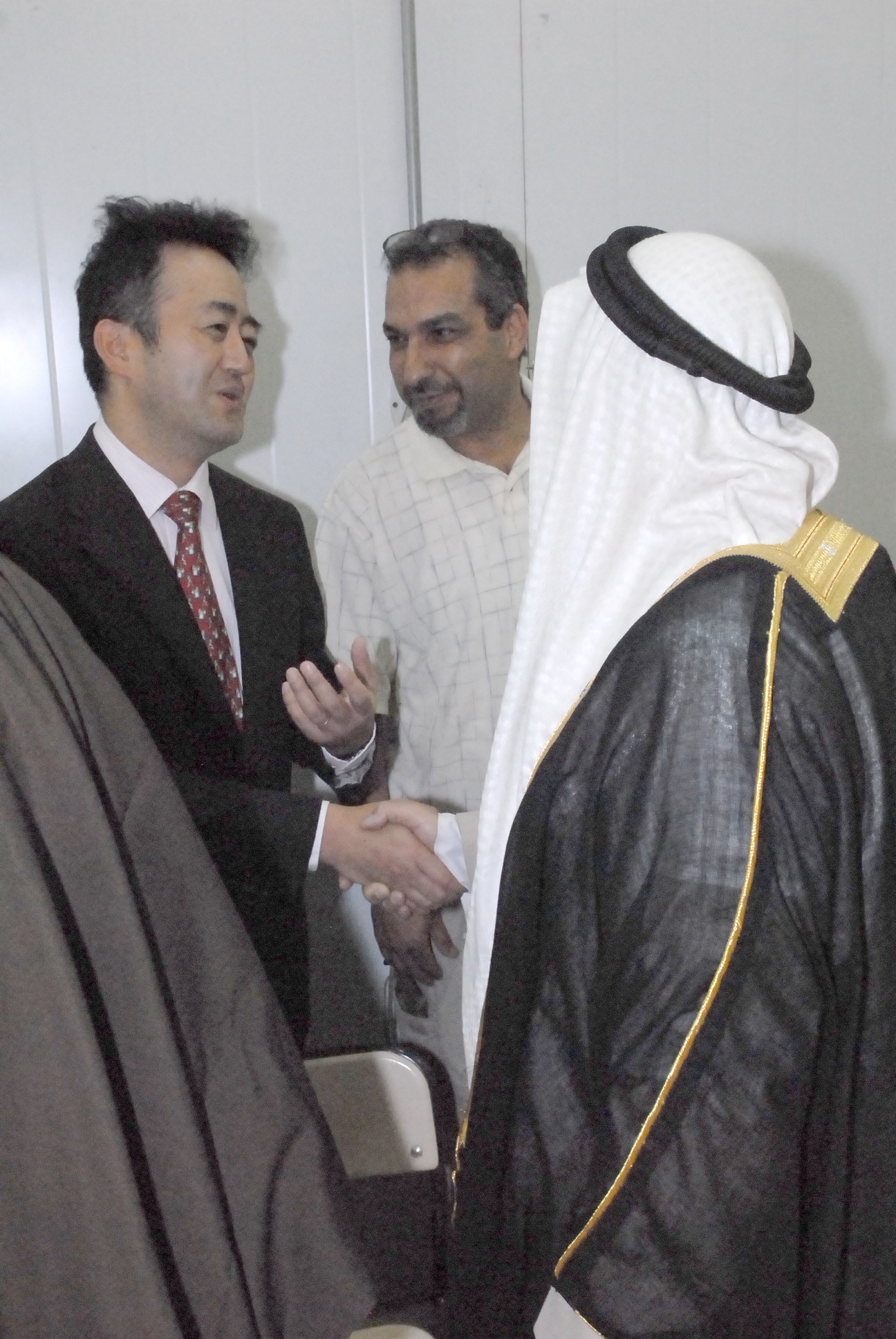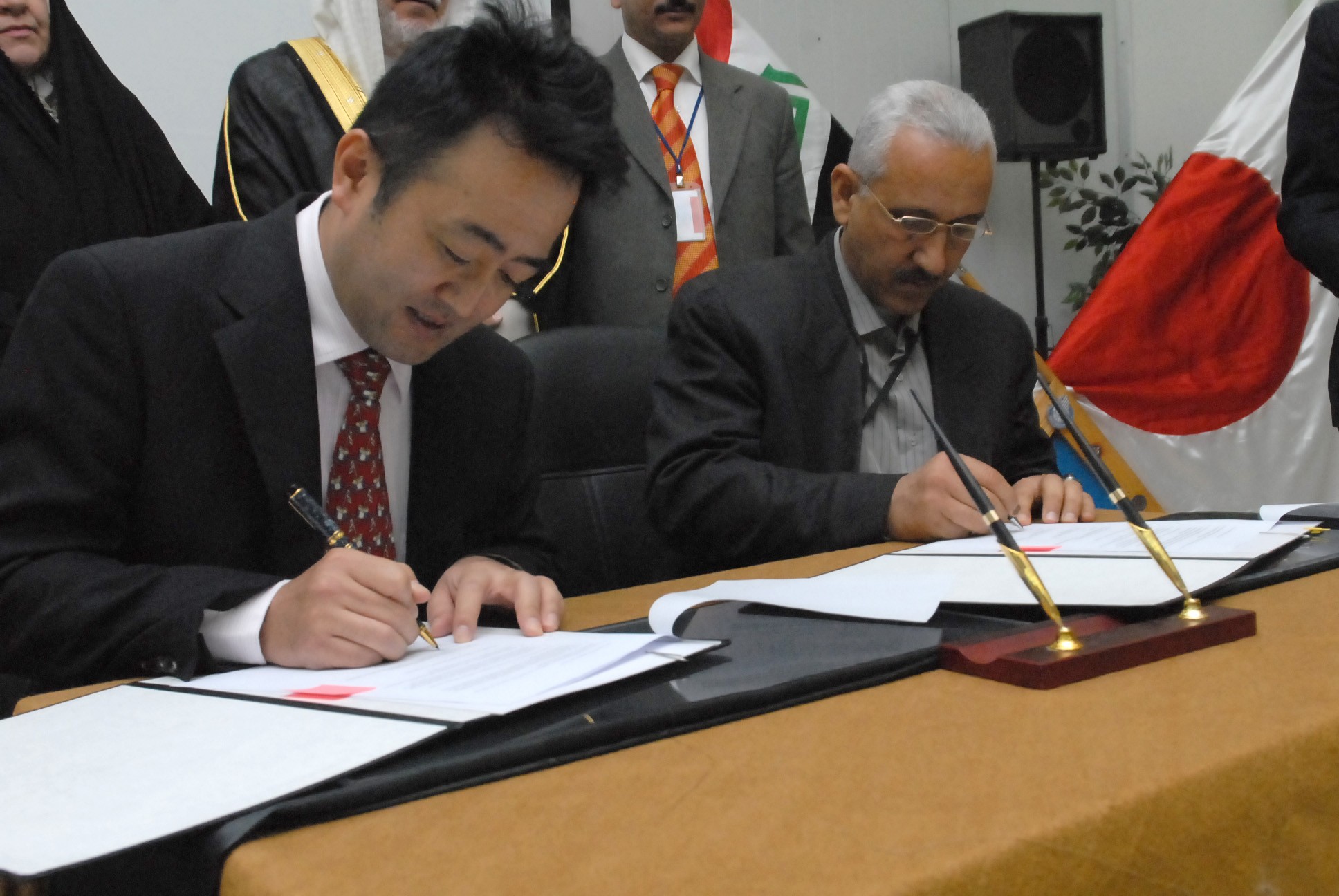The minister of the Japanese Embassy in Iraq signed a contract at Contingency Operating Site Kalsu March 24, 2010, to provide funding for two grassroots projects, which will benefit widows in Babil Province.
The Seddah Women's Center and Jurf As-Sakhr Humanitarian Society both received grants that will help Iraqi widows learn to maintain and run honey-producing farms.
"The two projects we signed today will provide equipment and training for 100 women, but 40-times that number will ultimately benefit in the long run," Katsuhiko Takahashi, minister of the Japanese Embassy in Iraq, said through an interpreter. "Japan and the United States jointly contributed to these projects and they will aid in the development of Babil Province."
According to Takahashi, the Japanese government has funded 85 similar projects since 2003 and will continue to do so.
"The Japanese Embassy has been very active in supporting the reconstruction of Iraq," said Capt. Bryce Wunder, a member of the 1411 Civil Affairs Company. "They have offered a great source of funding for non-governmental organizations, called 'grassroots' human security project grants."
The funded projects tap into an abundant natural resource in the province: honey bees.
"The honey industry in Iraq is a lucrative one," Wunder said. "The excellent taste and quality is due to its high level of cedar and eucalyptus.
This makes for a solid opportunity for the local people.
"Honey offers beekeepers a solid income each year," Wunder said. "We have established programs which offer war widows the ability to become beekeepers."
The commander of the 3rd Heavy Brigade Combat Team, 3rd Infantry Division, Col. Pete Jones, thanked Takahashi and the Japanese government for their support to the people of Iraq.
"I truly believe these grants will make a great impact on the economy and further advance women's initiatives in this area," he said.
Established in 2008, the Seddah Women's Center provides sewing jobs, training and humanitarian aid. It benefits the lives of 89,000 people, including 3,000 widows and 4,000 orphans.
The Jurf As-Sakhr Humanitarian Society was established in 2003 and helps approximately 750 widows and 317 orphans. The Society teaches literacy, sewing, and human rights courses to over 50,000 people.
"Japan intends to continue to provide assistance as it pertains to the life of the people in Iraq," said Takahashi.




Social Sharing